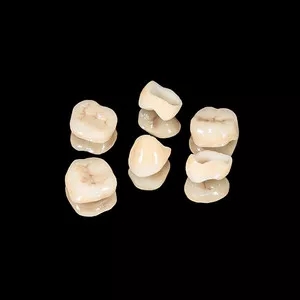Understanding the Advantages of Dental Crowns in Promoting Oral Health and Appearance

Dental crowns, also known as caps, are tooth-shaped restorations that are placed over damaged or decayed teeth, providing both functional and aesthetic benefits. This article aims to explore the various advantages of dental crowns and their importance in promoting oral health and enhancing the appearance of your smile.
1. Protection and Restoration of Damaged Teeth
Dental crowns are primarily used to protect and restore teeth that are severely damaged, decayed, or weakened. By covering the entire visible portion of the tooth, a crown provides a protective barrier against further decay, fracture, or infection. It strengthens the tooth structure, allowing it to function as it should and preventing the need for extraction.
2. Enhanced Strength and Durability
Constructed from high-quality materials such as porcelain, ceramic, or metal alloys, dental crowns are designed to be incredibly durable and long-lasting. They can withstand the forces of daily biting and chewing, providing enhanced strength to weak or compromised teeth. With proper care and oral hygiene practices, a well-fitted dental crown can last for many years.
3. Improved Functionality and Bite Alignment
In cases where a tooth is misshapen or has an improper bite alignment, a dental crown can help restore proper functionality. By reshaping and covering the tooth, a crown can improve biting and chewing abilities, making it easier to eat and speak. It also helps to maintain an even and balanced bite, reducing strain on the surrounding teeth and minimizing the risk of jaw-related disorders.
4. Natural and Aesthetic Appearance
One of the key advantages of dental crowns is their ability to blend seamlessly with your natural teeth, providing a natural and aesthetically pleasing appearance. Dentists carefully color-match the crown to your existing teeth, ensuring a perfect fit and avoiding any noticeable differences in shade. This makes dental crowns an ideal solution for enhancing the appearance of stained, discolored, or misshapen teeth.
5. Versatility in Restorative and Cosmetic Dentistry
Dental crowns serve a wide range of purposes in restorative and cosmetic dentistry. Besides their role in protecting and restoring damaged teeth, crowns can also be used to anchor dental bridges, cover dental implants, or improve the appearance of severely discolored or misaligned teeth. The versatility of dental crowns makes them a valuable tool for dental professionals in achieving optimal oral health and smile aesthetics.
In conclusion, dental crowns offer numerous functional and aesthetic benefits. They not only provide protection and restoration for damaged teeth but also enhance strength, functionality, and bite alignment. With their natural appearance and versatility, dental crowns contribute significantly to improving oral health and the overall aesthetics of your smile. Consult with your dentist to determine the most suitable crown material and treatment plan for your specific dental needs.




